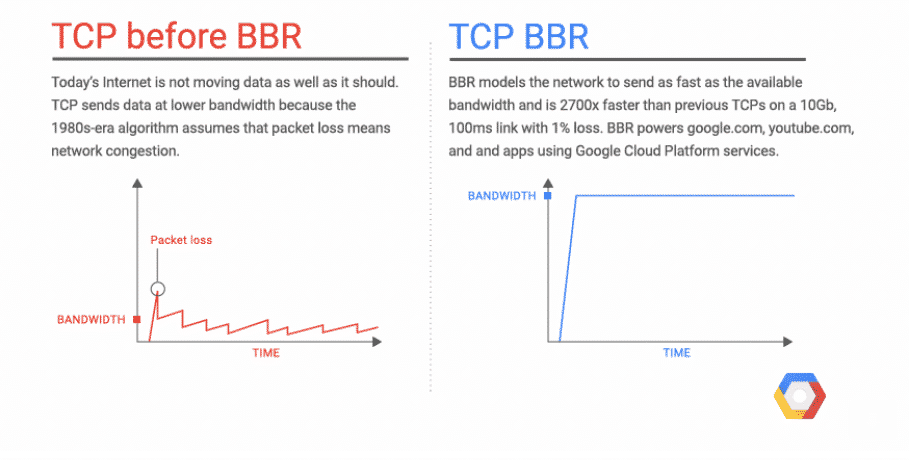A lot of background processes take place every second when we’re comfortably surfing the internet. Each process is set in place to optimize the user experience. These optimizations try to make the internet run faster and smoother, though companies like Google are looking to make it more snappy than ever.
Google has recently announced an update to its congestion control algorithm called BBR (short for Bottleneck Bandwidth and Round-trip propagation time) which will dramatically increase throughput aka internet speed while maintaining low latency and reduced packet loss.
How Does This Help Us?
Without getting into too many technicalities, BBR basically improves the existing ‘loss-based’ congestion control algorithms. These algorithms throttle (slow down) the transfer speeds whenever they detect packet loss. This was good when it was released back in 1980, but in today’s modern age, where routers and other network devices have evolved, it just doesn’t cut it.
Google claims to have made their own algorithm from the ground up based on another method of analysing a connection’s capability. With this algorithm, users can expect much quicker access times and faster overall data rates on services based on the Google Cloud Platform.
“BBR allows the 500,000 WordPress sites on our digital experience platform to load at lightning speed. According to Google’s tests, BBR’s throughput can reach as much as 2,700x higher than today’s best loss-based congestion control; queuing delays can be 25x lower. Network innovations like BBR are just one of the many reasons we partner with GCP.” said Jason Cohen, Founder and CTO, WordPress Engine
Google has tried to explain this new algorithm through this pictorial representation.
Not the First Time
This isn’t Google’s first attempt at driving up internet speeds by updating congestion algorithms. Recently in March, Google started using its own algorithm for its services like its search engine and YouTube. This increased the worldwide speed of the sites by at least 4% while a 14% boost was observed in some countries.
This may seem insignificant on its own, but this is the average increase, meaning a lot of users experienced much larger changes to their bandwidths.
Additionally, Google has also tried to achieve faster loading speeds by making optimizations in the compression algorithms in Chrome. Its pretty clear that Google is pushing for a faster internet and it is quite natural since most of its revenue comes from cloud services.



























Exactly Google loves speed because one second can improve the conversion rate up to 20%, but Propakistani seems slow. :D
https://uploads.disquscdn.com/images/491707ae53f8b80d03c84d8049055b6604bcb1ead845c6ac40e0efbed932bdca.jpg